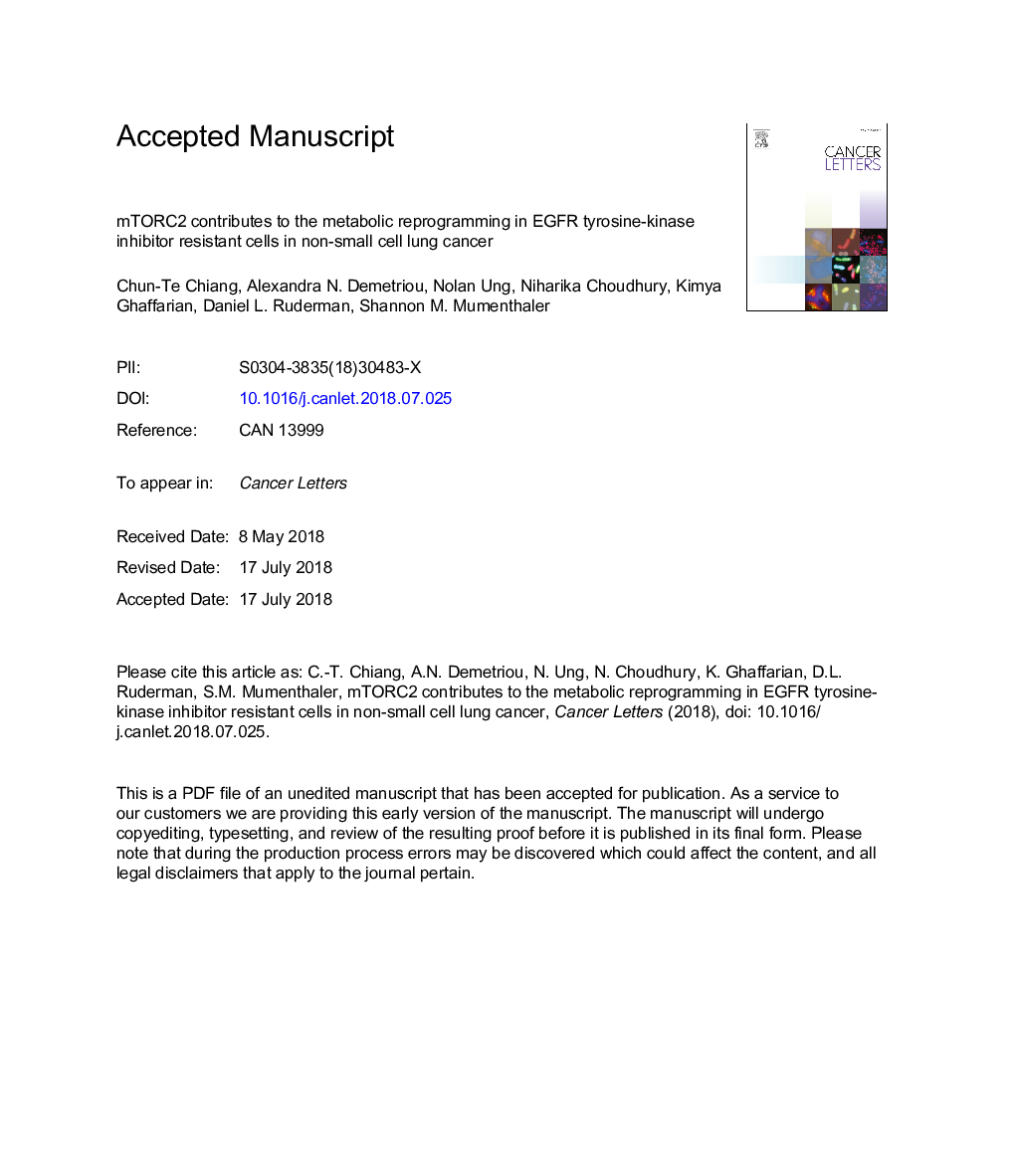| کد مقاله | کد نشریه | سال انتشار | مقاله انگلیسی | نسخه تمام متن |
|---|---|---|---|---|
| 8434135 | 1546635 | 2018 | 20 صفحه PDF | دانلود رایگان |
عنوان انگلیسی مقاله ISI
mTORC2 contributes to the metabolic reprogramming in EGFR tyrosine-kinase inhibitor resistant cells in non-small cell lung cancer
دانلود مقاله + سفارش ترجمه
دانلود مقاله ISI انگلیسی
رایگان برای ایرانیان
موضوعات مرتبط
علوم زیستی و بیوفناوری
بیوشیمی، ژنتیک و زیست شناسی مولکولی
تحقیقات سرطان
پیش نمایش صفحه اول مقاله

چکیده انگلیسی
Non-small cell lung cancer (NSCLC) patients with activating EGFR mutations are often successfully treated with EGFR tyrosine kinase inhibitor (TKI) such as erlotinib; however, treatment resistance inevitably occurs. Given tumor metabolism of glucose and therapeutic response are intimately linked, we explored the metabolic differences between isogenic erlotinib-sensitive and -resistant NSCLC cell lines. We discovered that the growth of erlotinib-resistant cells is more sensitive to glucose deprivation. Seahorse metabolic assay revealed erlotinib-resistant cells have lower spare respiratory capacity (SRC), an indicator of metabolic flexibility, compared to erlotinib-sensitive cells. Additionally, we found downstream components of mTORC2 signaling to be phosphorylated in erlotinib-resistant cells. Knockdown of an mTORC2 component, Rictor, enhanced the SRC and rescued the growth rate of erlotinib-resistant cells during glucose deprivation. Among NSCLCs with activating EGFR mutations, gene sets involved in glucose metabolism were enriched in patients with high expression of p-NDGR1, a readout of mTORC2 activity. Furthermore, overall survival was negatively correlated with p-NDRG1. Our work uncovers a link between mTORC2 and metabolic reprogramming in EGFR TKI-resistant cells and highlights the significance of mTORC2 in the progression of EGFR-mutated NSCLC.
ناشر
Database: Elsevier - ScienceDirect (ساینس دایرکت)
Journal: Cancer Letters - Volume 434, 10 October 2018, Pages 152-159
Journal: Cancer Letters - Volume 434, 10 October 2018, Pages 152-159
نویسندگان
Chun-Te Chiang, Alexandra N. Demetriou, Nolan Ung, Niharika Choudhury, Kimya Ghaffarian, Daniel L. Ruderman, Shannon M. Mumenthaler,